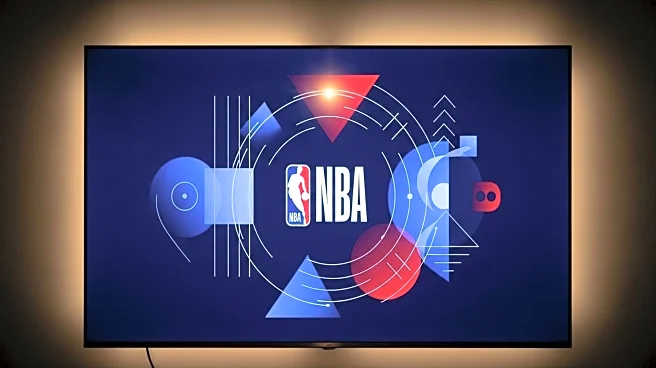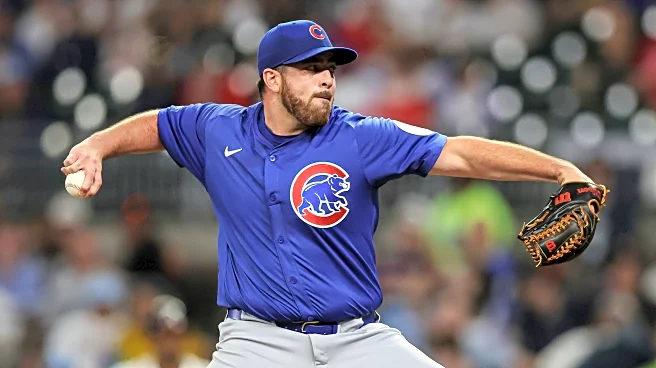What's Happening?
The NBA has officially taken over the operation of NBA TV from TNT Sports, marking the end of TNT Sports' involvement since the 2008-09 season. This transition involves the NBA handling all programming, with new original content set to launch on October 13. The network will feature a mix of preseason games, season previews, and hosted studio shows. Previously, TNT Sports produced playoff games for NBA TV, including its final batch this past postseason. The change has left several employees at NBA TV and NBA.com uncertain about their futures, although the league is expected to retain most Turner employees for the upcoming season. National NBA games will now air or stream on ESPN/ABC, NBC, Amazon Prime, or League Pass.
Why It's Important?
This shift in control from TNT Sports to the NBA represents a significant change in the broadcasting landscape for NBA TV. It could impact the way NBA content is produced and distributed, potentially affecting viewership and advertising strategies. Employees at NBA TV and NBA.com face uncertainty regarding their job security, which could lead to changes in staffing and operations. The move also reflects broader trends in media consolidation and the strategic realignment of sports broadcasting rights. The NBA's direct involvement may lead to more tailored content and programming decisions that align closely with league priorities.
What's Next?
The NBA is expected to launch new original content on NBA TV starting October 13, which may set the tone for future programming. The league's decision to retain most Turner employees suggests a period of transition and adaptation for staff. As the NBA assumes control, stakeholders such as advertisers and viewers will be watching closely to see how the network's content evolves. The shift may also prompt reactions from other broadcasters and media companies as they assess the competitive landscape in sports broadcasting.
Beyond the Headlines
The transition could have deeper implications for the sports media industry, highlighting the growing trend of leagues taking control of their own media channels. This move may influence how other sports leagues approach their broadcasting strategies, potentially leading to more direct control over content and distribution. Additionally, the change may affect the cultural and ethical dimensions of sports media, as the NBA could prioritize content that aligns with its values and mission.











